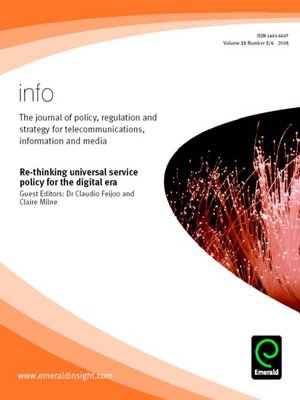
Chen, J. V., Ross, W. H., & Huang, S. F. (2008). Privacy, Trust, and Justice Considerations for
Location-Based Mobile Telecommunication Services.
Info:
The Journal of Policy, Regulation, and Strategy for
Telecommunications, Information, and Media
Vol. 10, No. 4, pp. 30 – 45.
Abstract
The development of triangulation-based or Global Positioning Satellite (GPS) - based location-based services has accompanied the growth of mobile telecommunication.
Location-based services provide mobile telephone users with additional functions (e.g., being able to locate a nearby four-star restaurant). However, the growth of
location-based services raises several important issues. For example, government officials and emergency medical teams may use these technologies to locate roadside
accidents under the "E-911 mandate" in the U.S. (that requires all cellular telephones to be equipped with technology that allows physically tracking the phone handset).
However, criminals can also use these technologies to determine the location of their next victim. Thus, these technological developments raise consumer concerns
over privacy, trust, and justice – which telecommunication providers should address. The present paper offers testable propositions and calls for research that can
help firms address these issues.

Not the actual journal abstract. For the extended, structured, journal abstract, as well as the opportunity to purchase a reprint of the final version of the article, visit the website for Info at:
The abstract that is found at that website and is published in the journal is copyrighted by Emerald Group Publishing, Limited. So is the cover image. All rights reserved by the publisher.
The final version of this paper is copyrighted (C) by the Emerald Group Publishing, Limited.
Consistent with guidance from the SHERPA website (http://www.sherpa.ac.uk/romeo/) which lists journal copyright policies, an earlier, pre-published (typed draft) of this paper is available at the MINDS@UW repository. This repository allows University of Wisconsin system faculty to archive draft versions of papers. Please do not quote the draft version. It may or may not be identical to the final, published, version. The draft version is available so that readers may consider the ideas and decide whether they wish to acquire the published version. The link to the draft version is: http://minds.wisconsin.edu/handle/1793/38161